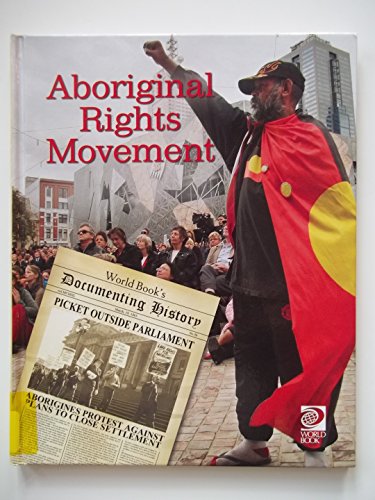
Mount St Benedict College acknowledges and pays respect to the past and present traditional custodians and elders of this nation and the continuation of cultural, spiritual and educational practices of Aboriginal and Torres Strait Islander peoples. Ancestors have walked this country and we acknowledge their special and unique place in our nation’s historical, cultural and linguistic identity.
Visitors should be aware that this Research Guide may contain images or documentation relating to Aboriginal and Torres Strait Islander people who are deceased.
 Aboriginal Rights Movement
by
Aboriginal Rights Movement
by
Indigenous Australian's rights and freedoms have changed greatly over the last century or so, in this video we take a look at some of the key policies that helped to change Aboriginal rights for the better.
Looking back on pivotal events like the 1972 founding of the tent embassy, Pocket Compass asks has the Indigenous voice been heard on treaty, recognition and truth? And is there such a thing as an Indigenous Nation?
Aboriginal and Torres Strait Islander Customary Laws and Traditional Governance Structures/Systems
Aboriginal and Torres Strait Islander Linguistic/Geo-cultural Maps
Aboriginal and Torres Strait Islander Rights
The United Nations Declaration on the Rights of Indigenous Peoples builds on the Universal Declaration of Human Rights to affirm that Indigenous peoples, including Australia’s Aboriginal and Torres Strait Islander peoples, are no less equal to all other peoples and to recognise the rights of all peoples to be different and to be respected as such. The Universal Declaration of Human Rights and the Declaration on the Rights of Indigenous Peoples are co-constructive frameworks which sanction the simultaneous importance of equality and equity and humanity and diversity. Some recently released rights-based classroom resources include:
Australian Human Rights Commission—Face the Facts: Aboriginal and Torres Strait Islander Peoples
Australian Human Rights Commission—Human rights in the school classroom
Australian Human Rights Commission—Racial Discrimination? Know your rights film clip
Australian Human Rights Commission—UN Declaration on the Rights of Indigenous Peoples film clip
Australian Human Rights Commission—What you say matters. Racism. It Stops with Me. Feat. Brothablack film clip beyondblue—The Invisible Discriminator: Create Change at Your School
Education Services Australia—Racism and human rights
Beyond Blue – The invisible discriminator
Calgary Anti-Racism Education – You in anti-racism
NSW Department of Education and Communities—Racism. No Way: Anti-Racism Education for Australian Schools
Reconciliation Australia—Let’s Talk…Land Rights